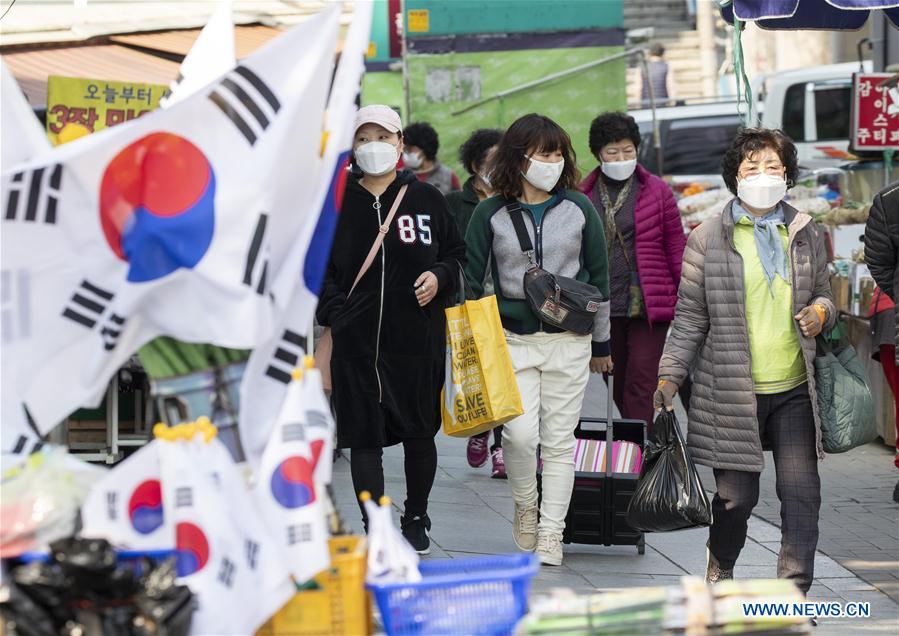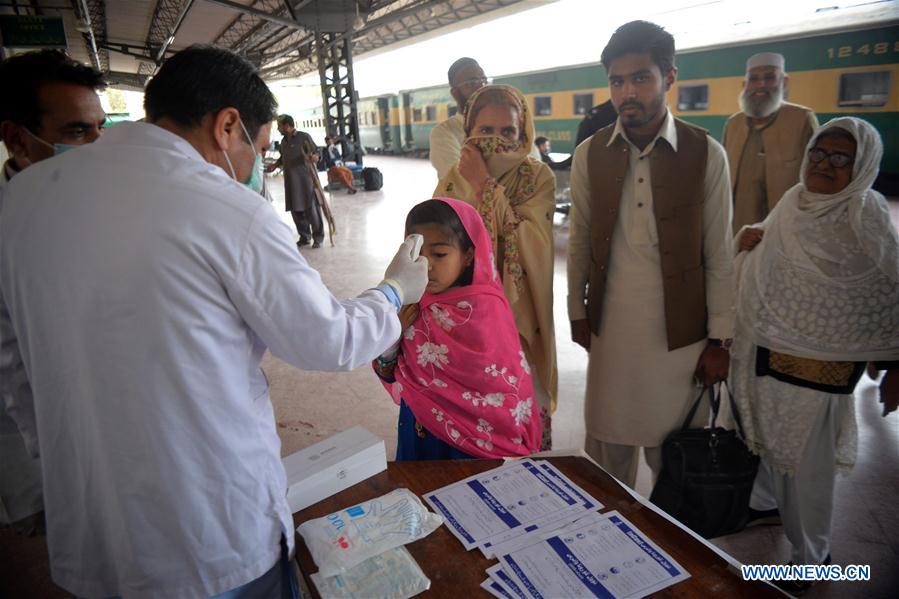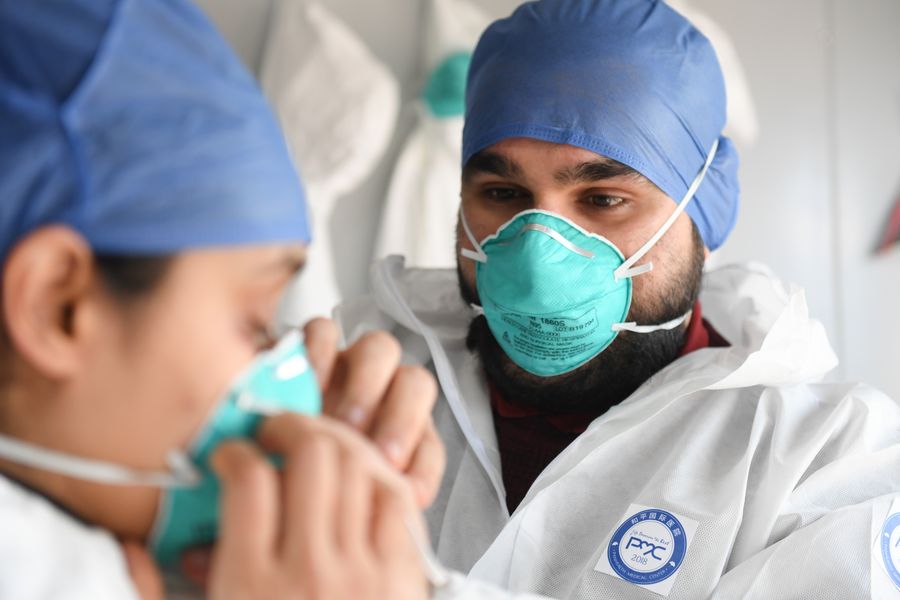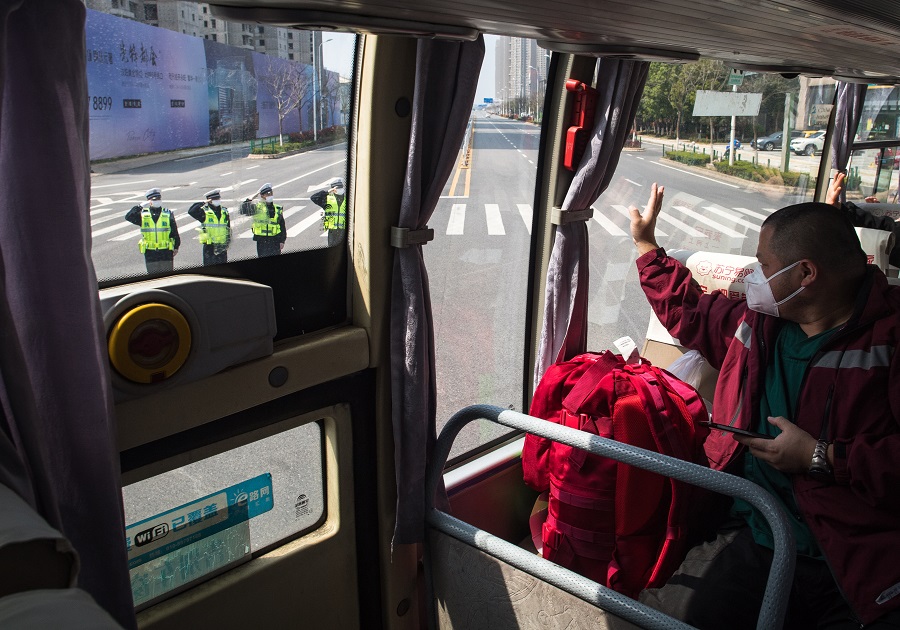
People walk on the street around the Seomun Market in Daegu, South Korea, March 17, 2020. South Korea reported 84 more cases of the COVID-19 compared to 24 hours ago as of midnight Tuesday local time, raising the total number of infections to 8,320. The newly confirmed cases stayed below 100 for the third consecutive day, after recording the first double-digit growth in 23 days on Sunday. Six more deaths were confirmed, lifting the death toll to 82. The total fatality rate came in at 0.99 percent. (Photo by Lee Sang-ho/Xinhua)
SEOUL, March 17 -- South Korea reported 84 more cases of the COVID-19 compared to 24 hours ago as of midnight Tuesday local time, raising the total number of infections to 8,320.
The newly confirmed cases stayed below 100 for the third consecutive day, after recording the first double-digit growth in 23 days on Sunday.
Six more deaths were confirmed, lifting the death toll to 82. The total fatality rate came in at 0.99 percent.
A total of 264 more patients were discharged from quarantine after making full recovery, pulling up the combined number to 1,401. The number of recoveries kept surpassing new infections.
The Korea Centers for Disease Control and Prevention (KCDC) decided to update the data once a day at 10:00 a.m. local time from March 10, after having announced it twice a day.
The virus infection soared for the past weeks, with 8,289 new cases reported from Feb. 19 to March 16. The country has raised its four-tier virus alert to the highest "red" level.
The total number of infections in Daegu, about 300 km southeast of Seoul, and its surrounding North Gyeongsang province increased to 6,098 and 1,169 respectively. It accounted for almost 90 percent of the total.
The numbers in Seoul and its adjacent Gyeonggi province came to 265 and 262 each.
Daegu became the epicenter of the viral spread here as the biggest cluster of infections was found in the metropolis with a 2.5 million population. Daegu has been designated by the government as a "special disaster zone."
The Daegu cluster was closely linked to the church services of a homegrown minor religious sect, called Sincheonji, in Daegu. Members of the sect are known to sit on the floor closely side by side during church services.
The cluster infections accounted for about 80 percent of the total, and some 60 percent was traced to the Sincheonji sect.
Since Jan. 3, the country has tested more than 286,000 people, among whom 261,105 tested negative for the virus and 17,291 were being checked.













